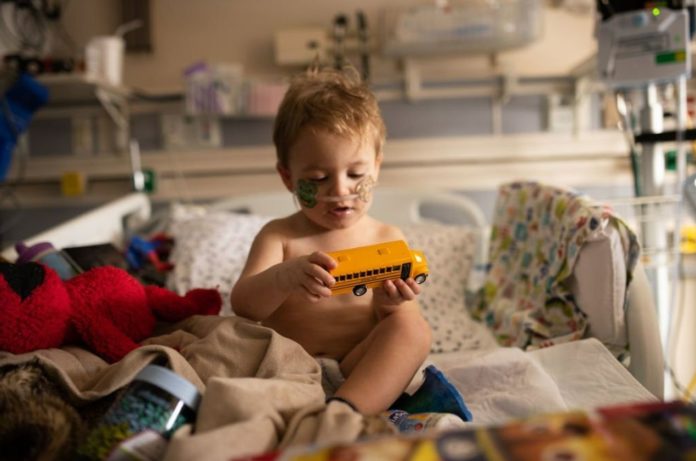For the past two years, we have all been concerned about the coronavirus and its impact on our children, but the truth is that the RSV virus causes double the number of hospitalizations.
Here’s everything you need to know about it.
It’s been easy to believe that covid is the only disease in the world over the last two years, but the truth is that there are a number of viruses circulating among us, and some of them cause just as much damage.
In a new study, researchers looked at how many kids were hospitalized because of corona and how many kids were hospitalized because of RSV, a virus that makes kids have trouble breathing.
According to the data, the mean hospitalization rate due to morbidity was double that of the coronavirus in patients infected with RSV.
Children infected with RSV need more medical and nursing attention than children infected with coronavirus, according to the findings.
The study, published in The Journal of Infectious Disorders, discovered that diseases induced by the RSV virus resulted in lengthier hospitalizations than coronary heart disease in newborns and young children.
Researchers from the Germany’s University of Cologne examined hospitalization records for 748 newborns and young children aged birth to four who were admitted between March 2020 and November 2021. In laboratory examinations, all of the youngsters were determined to have RSV or corona charges in roughly 200 of them.
The average hospitalization stays for an illness caused by RSV was four days, according to the research, compared to only two days who got the corona virus and required treatment. In comparison to children hospitalized for the corona virus (8.3 and 0%, respectively), the researchers discovered that children hospitalized for the RSV virus had greater rates of needing oxygen therapy (39.6%) and respiratory tract use (24.3%).
Additionally, there were differences between the two groups in airway air pressure (1.8 vs. 0%), pediatric critical care (10.1 vs. 0%), and the need for artificial respiration (1.2 vs. 0 percent).
According to our findings, symptomatic patients with RSV virus were more ill than Corona patients, and were hospitalized for significantly longer compared to patients infected with corona.
By the age of two, almost every baby will be infected with RSV
RSV (or Respiratory syncytial virus) is a common cause of respiratory diseases in infants. By the age of two, almost every baby will be infected with this virus. Among preterm infants and infants with severe heart and lung disease, the risk of developing a serious illness from this virus is higher.
Respiratory diseases may include symptoms such as fever, sore throat and runny nose. In some cases, increasing shortness of breath may also occur, and in some cases, it is necessary to assist in providing oxygen. In preterm infants and infants with congenital heart disease, kidney damage or immunosuppression – the disease tends to be particularly severe and can result in high mortality.
RSV is the most significant factor in hospitalizing children and occupying beds during the winter. The long-term effects of morbidity as a result of the RSV virus are ambiguous but there is evidence of an over-prevalence of asthma, early wheezing and recurrent respiratory infections.
Vaccine against the virus can prevent the disease
Despite the corona epidemic, diseases caused by the RSV virus still carry a heavier burden in pediatric morbidity. Vaccination against the virus can prevent the morbidity of the RSV virus and prevent respiratory exacerbation in infants at risk for severe morbidity, thus saving the need for hospitalizations.
While the coronavirus does not yet have vaccines for the infant and child population under the age of five, RSV has vaccines. The vaccines currently available for RSV are “tolerable vaccines” designed to protect preterm infants from contracting this disease.
As it is a passive vaccine that provides antibodies to the baby without stimulating the independent immune system, it is necessary to administer repeat doses during the season in which the virus is circulating. A new vaccine has recently been developed that shows high efficacy in preventing RSV morbidity in infants and preterm infants born even after the 35th week of pregnancy. The vaccine is given in only one dose and without the need to give five doses as is the case to date.
Source:10.1093/infdis/jiac052
Image Credit: Getty
You were reading: This virus causes more hospitalizations in children than COVID
